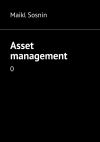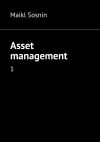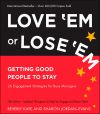Правообладателям!
Представленный фрагмент книги размещен по согласованию с распространителем легального контента ООО "ЛитРес" (не более 20% исходного текста). Если вы считаете, что размещение материала нарушает ваши или чьи-либо права, то сообщите нам об этом.Читателям!
Оплатили, но не знаете что делать дальше?
Текст бизнес-книги "Get that Job in 7 simple steps"
Автор книги: Peter Storr
Раздел: Жанр неизвестен
Текущая страница: 1 (всего у книги 2 страниц)

Contents
Cover
Title Page
Step 1 Plan your hunt and keep it moving
Step 2 Understand what you want
Step 3 Know your skills and strengths
Step 4 Write a killer CV
Step 5 Ace the interview
Step 6 Perform well in assessments
Step 7 Survive and thrive in your new job
Keep Reading
About the Author
Copyright
About the Publisher
Step 1
PLAN YOUR HUNT AND KEEP IT MOVING
‘Knowing that we are responsible – “responseable” – is fundamental to our effectiveness and to every other habit of effectiveness. — Stephen R. Covey: The 7 Habits of Highly Effective People
Five ways to succeed
Recognise that you are responsible for your own career.
Make a ‘Get that job’ plan and regularly review it.
Create an ‘elevator pitch’ and practise it.
Create a network and keep in touch with your contacts.
Know what helps you stay motivated when things get tough.
Five ways to fail
Assume that a dream job is going to fall into your lap.
Fire off a stream of random applications and hope for the best.
Make the assumption that people will know what you want.
Try to do it all yourself without support.
Give up after a couple of attempts.
The changing job market
How it used to be …
Let me start with a personal example. I left school in 1980 and got a job in a bank. I didn’t mean to really; it just happened. I remember having a chat with the school careers officer who suggested banking was a good idea, but to be honest I don’t think I gave it any more thought than that. What seemed to be important is that I got a job – any job – and that was that. I also seem to remember (it has got lost in the mists of time, rather) the job interview going something like this:
Them: Why do you want this job?
Me: Well, it sounded interesting and I’m good with numbers, I think.
Them: Congratulations! You’re in. You’ll retire when you’re 65.
I’m sure it wasn’t really like that, but it wasn’t far off. I got an interview at the first time of trying, too, and without really trying at all. It doesn’t work like that now, and it could be argued that it shouldn’t: I got a job that I wasn’t really interested in, wasn’t very good at and it was a rather unfulfilling period of my life – and they got someone who was average at best.
How it is now
Wind forward 30 years and things couldn’t be more different. There is no such thing as failsafe job security, it’s rare to get a job at the first time of trying and even rarer to be offered a job if you haven’t done your homework. Perhaps the major change though is in who is responsible for our career path. In my case, I was made to feel like I was a passive recipient of my future, with no control or accountability; as long as I went through the motions, I would fulfil the destiny presented to me.
Nowadays, it’s us, the jobseekers, more than ever, who are responsible. We’ve had to replace security in our employers with security in our employability; in other words, it’s up to us to build the transferable knowledge, skills and abilities to take from one employer to another, in a kind of ‘portfolio’. We are now in charge of our careers, which is both empowering and a little scary.

What does this mean for getting that job?
By now it will be clear that, today, merely sending off a few CVs to a few organisations you like the sound of and hoping for the best just doesn’t cut the mustard. You need to be proactive, to have a plan or a strategy for job hunting because job hunting is best thought of as a process; a sequence of steps that should be followed to maximise your chances of success. The simple truth is that employers expect prospective employees to show initiative and take charge of their own destinies. Taking the initiative is not about being aggressive, arrogant or overbearing. It’s about deciding to make things happen and then creating a plan to make them more likely to.
While it’s not always easy, and at times may be frustrating and disheartening, many people find it rather satisfying to make a plan and monitor its progress, analysing the results and learning from what worked and what didn’t. If you can share your plans, ideas, successes and failures with others who are in the same position as you, then that extra support and mutual encouragement can be invaluable. You also need to periodically review your plans and give them occasional reality checks. There is a saying: ‘The first sign of madness is to keep on doing the same things and expecting different results.’ If something seems not to be working, change it!
Your ‘Getting that job’ plan
So, what might your ‘Getting that job’ plan look like? The precise nature and components of your plan depend on the type of job you’re looking for. Graduate and managerial job selection processes often include assessments such as a presentation, role-play exercises or exercises that assess planning and organisational abilities. Other jobs may have manual dexterity tests or verbal/numerical reasoning tests or personality assessments, but essentially they are all just ways of ensuring that you fit the job and that the job fits you.
Most plans tend to cover the following areas:
Stage 1: Doing the groundworkResearching, networking, creating a plan, deciding what you want, clarifying your skills and strengths (see Steps 1, 2 and 3 of this book)
Stage 2: Getting ready to applyCreating a CV template, building a portfolio of evidence of competencies (see Step 4)
Stage 3: Preparing for interviewing and other assessmentsPresenting yourself, preparing for typical interview questions and understanding what assessments are likely to be used (see Steps 5 and 6)
Stage 4: Reviewing progress and keeping up to dateReviewing your job search process: what went well, what you could do differently next time, what development is needed
By following a process like this, you’ll put yourself in the best possible position to get that job.
Networking in your job search
It should now be clear that to be successful in job hunting, as in anything, it’s best to seize the initiative, to take control of the job hunting process – and to treat it like a process. Later steps in this book will take this a stage further, when we look at what you want to achieve and why you are the ideal candidate for specific jobs. Identifying the actions required during Step 1 will be easier if you’re aware of how you might find a job to apply for in the first place.
Of course, you may hear about a job through a relative, friend or someone you know. There’s nothing wrong with this – far from it – and your chances of this happening are greatly increased if you widen your circle of contacts. Most of us do this naturally and spontaneously, but we can (and should) also be more targeted and strategic about it. This is called ‘networking’. Think about your reactions to that word. As soon as we make it sound formal, a ‘thing’ we should be doing, it suddenly becomes scary. It’s worth practising and persevering though; a great many people become aware of a potential opportunity through someone they know.
Remember that this is not about getting an unfair advantage over others or being neatly slotted into a vacancy. When we have a good network we simply hear about more opportunities than we would otherwise – and there are more people potentially looking out for us.
Why it works
So, networking is, to put it simply, building our networks. Everybody is at the centre of their own network, a bit like a spider is in the middle of its web, and the further you can spin your web, the more chances you will have of hearing of opportunities that might have otherwise passed you by.
The principle is exactly the same as in selling: a ‘warm’ lead is far more likely to result in success than a ‘cold’ call. The fact that there’s an initial contact or relationship, no matter how small, is what seems to make the difference between a sale and no sale – and when you’re job hunting, you are in effect selling yourself. If we are recommended by someone else, that has a very powerful impact indeed. It’s probably the best possible strategy you can have for standing out from the crowd.
Don’t forget, however, that your network doesn’t end simply with the name on the list. Each name in your network will have their own network, so by implication you are in their network too, if at a stage removed. There are many instances of people hearing about a job through a contact of a contact, so the more people who know who you are, what you’re good at and what you’re looking for, the better your chances.
The good news is that networking is simple. Once you’ve made a list of everyone you know, it’s simply a matter of contacting them. The trick is to be strategic, and to have a plan. Don’t just send out a generic email to everyone on your list and hope for the best. Think about how you would feel if your friends did that. It’s far better to target your communication – to tailor the message to the recipient. Let’s look at this in more detail.
Building your network
The starting point for creating your network is simple, as we said earlier: to list everyone you know. Set yourself a target. If you can get to between 150 and 200 people in your first draft, then you’re well on your way! Don’t worry if it feels like a bit of a ‘stretch’ to include some of the names in your network; you can always prune it later. You may find the following list helpful to get you started:
Family
Friends
Friends of friends
People you have worked with in the past
People you work with now
People your partner knows
Neighbours
People you know from your hobbies or sporting activities
Customers you have had a good experience with
People you know through voluntary work
People who have supplied services to you or your workplace
Old school or university friends
Making contact
When you’ve made your list, the next stage is to contact each person to let them know that you’re looking for the next opportunity to further your career. Some people find it helpful to write out a script in advance of a telephone call; in any event, whatever means of communication you choose, be clear about the following:
How you come to be contacting this person; in other words, how you got their name (unless this is obvious).
A very brief summary of why and how this person may be able to help you. Note, asking them directly for a job is not a good idea; it’s too blunt and may make them feel they have been put on the spot. It’s far better to ask if they know of one, or to ask for any advice they can give as to how to find one, or if they know of someone else who could help.
Your current situation and what, precisely, you’re looking for.
It’s important to bear in mind that if they have no advice to give or haven’t heard of a specific opportunity, this is far from a wasted effort! By contacting them, you have planted a seed that may come to fruition many months down the line, and you have also reminded them of who you are, which makes it more likely that they’ll think of you should a suitable opportunity arise.
Using social media
Many people find using some form of social media helpful in developing and maintaining contacts and networks and becoming alert to job opportunities. In fact, nowadays it’s fair to say that it’s become essential. Like any system, however, it’s only as good as the data you put into it and the particular methods or sites that you use. And remember – it’s only a tool and is only part of the process. Many people fall into the trap of thinking that having a LinkedIn® page (a great idea), and connecting with people on it, is the same thing as networking. Having a presence on sites such as LinkedIn® has several benefits:
They help you keep track of your contacts and of their contact details.
They help you keep up to date with what your contacts are doing.
They enable you to post a brief summary of your work experience, key skills and attributes all in one place, and in a place that you can easily keep up to date.
You can post messages about what you’re doing and what you’re looking for.
You can receive and read messages from others.
It doesn’t cost anything!
You can use social media to your advantage in other ways, too. If you have a Twitter or Facebook account, follow or connect with the organisations you’re either applying to join or would be interested in joining; you’ll get a feel for the organisation’s style and key issues and concerns, and it’s a way of demonstrating enthusiasm, creative thinking and a degree of understanding of how the digital world works. It may be of benefit to start your own blog – maybe about your job search itself. Bloggers are the internet’s thought leaders, and you can link your blog to your profiles on LinkedIn® and Facebook. This would then, for example, go out to your connections on the weekly update email. If you search or connect with companies you’re interested in, you can look for employees of that company who are connected to those in your own network. You could then ask your connections for a connect request with those people you have identified.
A couple of other tips:
Regularly update your status to inform your connections across all social media of any relevant activities, such as training, achievements, articles you’ve read, book reviews. It will help them remain aware of your job search and interests.
Similarly, post regular updates on your progress on all your social media sites; you may want to update your contacts on what you’re looking for, interviews you’ve attended, people you’ve met.
A word of warning, however: be very careful about what you post on social networking sites. There have been cases where individuals have had to resign over inappropriate postings on social media sites. Many employers and recruiters check the Facebook and Twitter accounts of job applicants. You can’t go far wrong if you never post anything publicly on any form of social media that you wouldn’t want a prospective employer (or interviewer) to see. This applies to activities you write about, pictures that you may not want the wider public to see, and also the language you use. You can set up Facebook so it informs you of picture tags to enable you to view them before they’re published. You can’t stop them being ‘out there’ but you can stop them being identified with you. Likewise, be careful about what you post on anyone else’s Facebook page or website too – you will no longer have control of it and you may even need them to delete it for you.
If you are worried about anything that’s already in the public domain, some websites suggest moving those items off that profile and setting up another profile (a social media alias using a different name) so that you end up having both a professional and personal online profile. The first profile, with your correct name, then becomes your professional profile with content that you are happy to share with prospective employers.
You can type your name into any of the major search engines to find anything you may have forgotten about – and remember, if you can do this, so can a prospective employer, and more of them are starting to do so.
Networking in the field
Sometimes we get the opportunity to attend a function (such as a seminar or conference) where networking is one of the main reasons to go – or at least, a very useful side issue! The trick is to have a well-practised script to fall back on to help you get your key message across and to reduce the fear of running out of small talk.
Before you attend the function, prepare. If you had only 20 or so seconds between floors in an elevator to get the essence of ‘you’ across to a stranger, what would you say? This is the ‘elevator pitch’.
Remember that people love to talk about themselves, so first ask what they do and why they’re there, what they have enjoyed and what they’re intending to see, and then move on to talking about yourself and what you’re looking for.

Sounding pro
Usually, once a networking conversation has started, it looks after itself – it’s the getting going that feels like the most difficult part. Remember these basic rules:
Have an elevator pitch rehearsed.
Even if you don’t feel like it, smile!
Introduce yourself confidently, then ask about the other person.
Ask questions and make comments about the nature of their job and their organisation, if you can.
Turn the topic of attention to you at an appropriate point.
When the conversation reaches a natural close, end it politely and smile again! If it’s appropriate, give your contact details and ask them to get in touch if they hear of a suitable opportunity. Use your judgement. Did the other person seem to enjoy the conversation? Were they interested in what you had to say?
| Introducing yourself | Hi. I’m Jon. Nice to meet you. … |
| Using questions and comments to show interest in the other person | What have you enjoyed so far? / What were you hoping to get out of this event? / What do you do? / Where do you work? / That sounds like a really creative place to work. |
| Turning the topic of conversation to you | That sounds very interesting. I’m currently looking for my next opportunity. I’m here because I’m looking for a sales role in the technology industry. |
| Ending the conversation | It’s been very nice to meet you. / I’ve enjoyed meeting you very much. |
For more information on networking, see Successful Networking in 7 Simple Steps, published by HarperCollins.
Where else to find jobs
It’s fair to say that a large number of people get jobs – or at least hear about them – through their networks. Increasing the size and scope of yours will help you hear about those opportunities as they arise. Of course, you can’t only rely on your network – both real and virtual – to find job opportunities, even though it is a good strategy. Try to widen your search, and improve your chances of success, by considering avenues such as these:
Newspaper adverts: Look in all local papers, and even papers local to an area you would consider moving to.
Professional or specific industry magazines: As well as scanning advertisements, it’s a long shot to read an article and send a speculative letter, but you never know …
Libraries: These are a greatly under-used resource by job hunters. Some libraries have job advertisement areas, and some larger ones hold job-seeking seminars.
Job centres: One of the more obvious ways, but it’s definitely worth registering your interest and checking regularly. Bear in mind that it’s often jobs in the trades that are advertised in job centres.
Two of the most commonly used avenues are worth exploring in a bit more depth. Many people register with recruitment agencies, either specialist sector-specific ones or more generalist ones, and increasingly, job hunters are turning to internet job search sites to find opportunities.
Recruitment agencies
Some recruitment agencies are fabulous and are staffed by professionals who really want to help you find a job. And some are less good. But they are a useful resource for finding many types of job, and some organisations only advertise through specific agencies. As long as you understand that, like estate agents, they’re working primarily for their client, not you, and that they usually have an incredibly heavy workload so will tend to keep communication to a minimum, then there’s no harm in allowing them to help you. Follow these tips for dealing effectively with recruitment agencies:
Identify the most relevant recruitment agencies for the type of work or sector you’re interested in.
Be prepared to ask them questions about how the process works: what they require of you and what you can expect of them; how and when communication should be conducted and any advice they can give you.
Be clear about what you want – and only go for jobs you would be prepared to accept. If the agency puts you forward for a job that you subsequently turn down without a good reason, they’ll be unlikely to consider you again.
Always be honest: your reputation as someone who is straightforward to deal with is worth its weight in gold.
Make sure you come across to them and to any company you are referred to in a way that makes you look good: never be late; always be polite; present yourself appropriately.
Правообладателям!
Представленный фрагмент книги размещен по согласованию с распространителем легального контента ООО "ЛитРес" (не более 20% исходного текста). Если вы считаете, что размещение материала нарушает ваши или чьи-либо права, то сообщите нам об этом.Читателям!
Оплатили, но не знаете что делать дальше?






